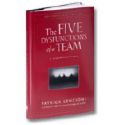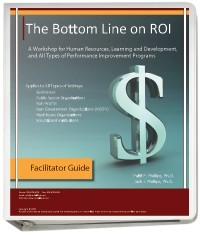|
Evaluation Worksheet Team-Building

Custom Search
Dr. Deming said to: PLAN-DO-CHECK-ACT This worksheet will help you with the CHECK and then you will need to ACT. This is part of the Total Quality Management process(TQM) . Use the worksheet below using a #1 to # 5 ranking scale. 1 to 5 : 5 = recurring, 4 = frequent, 3 = somewhat frequent, 2 = infrequent, 1 = uncommon.
From Teamgel.Com Title:Team Health Check - A worksheet to evaluate whether the symptoms frequently associated with team dysfunction are present on your team. Author: unknown Source URL: http://www.workforce.com/archive/article/22/13/01.php Use this checklist in your team to evaluate its health. Let team members answer each question privately on a scale of 1 to 5 - 5 = recurring, 4 = frequent, 3 = somewhat frequent, 2 = infrequent, 1 = uncommon. Discuss openly with a view to taking corrective action: 1. We have difficulty resolving conflicts before they get out of control. 2. The members of our team don't cooperate well on team efforts. 3. Many of our team members are dividing up into warring cliques. 4. The members of our team have difficulty coordinating their separate work activities. 5. We have to rely on others outside our team to keep us informed of our own activities. 6. We have difficulty determining how far we can go in taking individual action. 7. The members of our team circumvent our team leader to address issues or problems. 8. Communication with our team leader are limited and tense, or hostile. 9. Our team leader practices micromanagement. 10. We're frequently surprised by problems. 11. We tend to be reactive when it comes to problem solving. 12. We have difficulty interpreting the potential impact of large-scale changes. 13. We have difficulty responding to questions that lie outside our individual work areas. 14. We must often stop and wait for direction from our team leader before we can proceed. 15. We experience a lot of conflicting priorities regarding projects and team responsibilities. 16. We are forced to guesstimate our work quality and productivity. 17. We sometimes wonder if our good work is recognize by our organization. 18. We find it difficult to trace the underlying causes of team performance problems. 19. Our team is anxious about the vague and unknown future. 20. We tend to respond to change in a slow and poorly coordinated manner. 21. The members of our team actively resist change. 22. When tackling new problems, we rely too much to tried-and-true solutions. 23. Our team doesn't keep up with cutting-edge technology and work methods. 24. We fail to identify and exploit new opportunities. 25. Many members of our team are unwilling to commit to tough performance goals. 26. We engage in retrospective thinking about setbacks that have already occurred. 27. We engage in a lot of finger-pointing to account for team problems. 28. We tend to be the last to know about impending business or organizational changes. 29. Our team has difficulty getting approval for needed resources.
30. Our senior managers occasionally outsource our work.
Five Dysfunctions of a Team Assessment TEAMWORK … The ultimate competitive advantage. Based on Patrick Lencioni’s New York Times best-seller, The FIVE DYSFUNCTIONS of a TEAM addresses the five obstacles that prevent even the best teams from succeeding. This tool offers a powerful model and actionable steps that can be used to overcome common hurdles and build a cohesive, effective team. The FIVE DYSFUNCTIONS of a TEAM includes a comprehensive Facilitator’s Guide, team assessment, participant workbook, poster and more! The Five Dysfunctions of a Team: Absence of Trust Fear of Conflict Lack of Commitment Avoidance of Accountability Inattention to Results The Facilitator Guide provides everything you need to deliver a high-impact workshop for intact teams, including an introduction to the model, instructions for administering and debriefing the 38-item team assessment, and a script for presentation delivery. Learning Outcomes Discover teamwork is a strategic choice. It’s a purposeful decision that organizations make.
Understand that functional teams make higher-quality decisions and accomplish more in less time.
Learn the Five Dysfunctions of a Team model.
Overcome common problems that stop your team from performing. Learn more about this team building tool at HRDQ:
Use this tool for team-work & team roles Group development assessment tool
The Bottom Line on ROI Put your money with your mouth is The Bottom Line on ROI “The Bottom Line on ROI is not a detailed reference on the ROI Methodology. What it does do is enable readers to understand and make sense of the ROI Methodology from a business perspective.” Jack J. Phillips, PhD
Developer of the ROI Methodology
Chairman and Co-founder, ROI Institute, Inc. Authors: Jack and Patty have authored and co-authored several best-selling books, including Show Me the Money: How to Determine ROI in People, Projects, and Programs and The Value of Learning.
|









